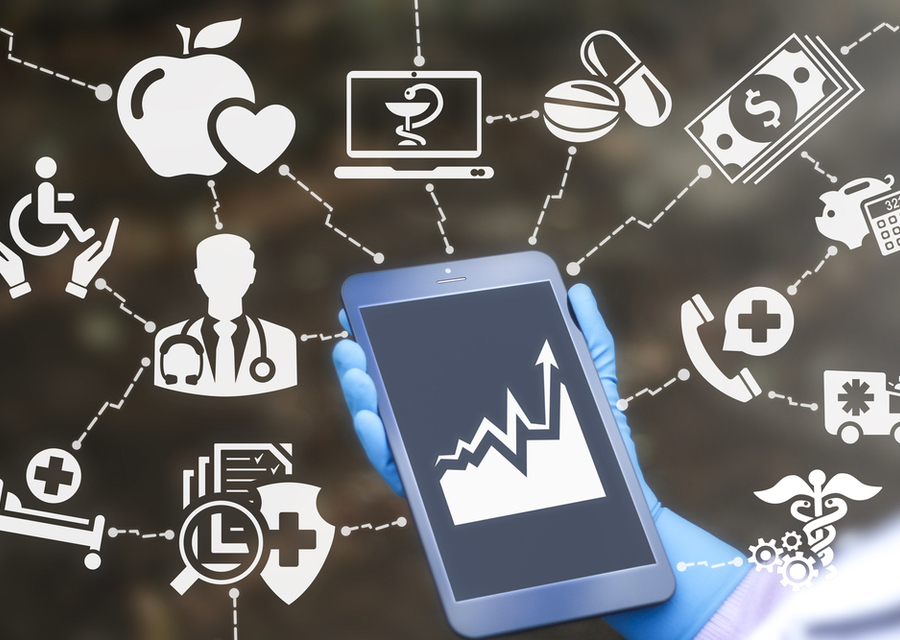Social Media in Healthcare: How to Navigate It Successfully
Social media in healthcare can be a powerful tool for organizations, but many clinics and providers are just not confident in how to use it in the best possible ways.
Understanding best practices for social media isn’t enough when you work for a healthcare clinic or office. You also have to know about how social media can and can’t be used to market within the healthcare industry. After all, there are some industries where they can use every single piece of information they have about their customers to make the next sale. Clearly, those industries aren’t dealing with federally-protected patient information.
Healthcare providers also have to figure out how to combat the massive amount of information on the internet, especially since some of it is outdated or just flat-out incorrect!
This article is written for people who want to implement a new social media strategy for their clinic or improve what they are already doing. We’re going to break our advice down into three main categories:
- Your responsibilities when it comes to HIPAA compliance
- Which social networks will earn you the biggest audience and the most leads
- How to build an audience through great content
At ThinkFuel, we work with health companies all the time that want to improve their social media performance. We know what works! Let’s take a look at what you need to know to turn your unique brand into a social media presence that will send more traffic and more patients your way.
Table of Contents
Know Your HIPAA Responsibilities
What social media platforms should you use?
Ready to find your audience?
What is the most important thing to remember about social media in healthcare?
If you’re feeling overwhelmed, we can help!
Know Your HIPAA Responsibilities
Before you start building a social media strategy, make sure that you understand the ins and outs of HIPAA and social media.
The rules are clear: you can never use or disclose a patient’s Protected Health Information (PHI) via social media. In trying to create content, some providers have crossed a line by including patient pictures or identifiable medical information on their social media platforms.
This is a big problem, and you should ensure that all of your healthcare team is fully trained on HIPAA and social media. Even if they are not going to be using the official social media accounts, if a provider violates HIPAA on their own account, that will come back to you as the employer.
For your own social media campaigns, you should ensure that you have explicit written consent for any information that is shared with the public. For example, if you want to discuss the successful treatment of a patient or discuss the patient experience, you would need to either: A) get written permission from the patient that outlines what you are allowed to share, or B) create fictional personas instead of discussing actual patients.
Just keep in mind that like any other use of patient info, you can only share information that you have permission to share.
We also recommend using a tool like HubSpot to prevent any medical information from being unintentionally accessed in your digital marketing or social media usage. We have written about this here! This keeps any health-related information from being accessed by the public or used for sales purposes.
What social media platforms should you use?
A qualified healthcare marketing professional can help you discover the best social media platform for your company. Not all platforms are created equally! Healthcare marketers know that audience age group matters when it comes to choosing social media channels. For example, a company with an older pool of prospective patients is going to do better on Facebook, whereas a Gen Z audience is more likely to be found on YouTube or even TikTok.
One of the benefits of outsourcing your social media tasks is that you don’t have to become an expert in every platform, old or new. You should expect your healthcare marketing company to use their comprehensive knowledge of platforms to choose the best one for you.
Things to take into consideration are:
- How old is your target audience?
- Do you work primarily with one gender?
- Do you live in an area where one platform is used more than others?
- Are you prepared to create content that matches each platform’s needs--for example, short videos for TikTok, longer videos for YouTube, photo galleries for Facebook, and short posts for Twitter?
Ready to find your audience?
This is the most exciting part of using social media: finding an audience that is eager to hear what you have to say! Engagement is one of the best metrics for assessing your success on social media, so your goal should be to create content that gets likes, shares, and comments.
How can do you do this? We have four pieces of advice!
1. Create a unique voice for your organization.
Do you know how some people find medical offices to be intimidating or cold? This is your chance to show that you are NOT a cold or intimidating space.
Do you want to be super professional and informative, treating your patients as partners in their own healthcare? Do you want to be friendly and cheerful, a voice of encouragement for those who are anxious or uncertain about what comes next in their healthcare journey? Or do you want to be trend-setting and funny, appealing to audiences who care about being on the cutting edge of whatever is happening now?
There are countless voices you can take on as you develop your social media presence, but here is your chance to be consistent and to reflect your values.
Some ways to do this include:
- Posting content regularly
- Responding professionally to reviews
- Sharing insights about your company
- Providing background information about everyone on your staff
2. Take on the role of “educator.”
This isn’t going to be new information to you, but here it is anyway: healthcare professionals often have to battle misinformation that patients found online. One strategy for correcting misinformation is to get lots of better info out there on the internet.
You have a chance to educate your audience about their health and to counteract the misinformation that is floating around the web.
This is such a great way to approach creating social media content! You can write original articles, create short videos, direct people to an already-existing article or health resource from partners you trust, all with the goal of providing accurate and understandable health information to your readers.
This will help you become a voice of authority, and when potential patients think about their personal health, they will think about you!
3. Develop the habit of providing insightful public health information.
The novel coronavirus pandemic has shown us just how important it is that people have access to accurate and specific public health info.
Whether you are addressing issues related to the coronavirus or any other public health crisis, you can become an authority on the topic as it relates to your specific field. Not everyone can report on all topics equally because not everyone shares the same expertise. But you and your medical team are experts in your specific field, and you can explain the public health implications to your audience.
This is another habit that builds trust between patient and provider.
4. Engage, engage, engage!
Nobody likes feeling like they are talking but nobody else is listening. At first, that’s what social media management can feel like.
One of the best ways to develop an audience is to engage with everyone who does interact with your posts. That means responding to reviews, sure, but it also means answering their questions, asking open-ended questions that prompt people to share their answers, liking their comments, and interacting with them as much as possible.
This does two things: 1) it helps people feel more connected to your brand, and 2) it helps you show up in other people’s news feeds.
Engagement will allow you to promote health while increasing the number of patients you see on a daily basis.
What is the most important thing to remember about social media in healthcare?
Give your readers something they can’t get anywhere else!
Inbound marketing, which is sometimes called content marketing, is all about getting the right people to discover your website and, therefore everything you have to offer.
When you create meaningful content, people begin to seek out your perspective on things. Before heading off to WebMD or searching Google, they remember that you posted something about the topic recently, and they go to find it.
When they need something more personalized than a generic website, they can go to you with their questions and know that they will be heard by a real person, not just a marketing bot or a healthcare provider 1000 miles away. They will be more confident in the treatment options you provide because they already feel like they know you through your social media.
If you’re feeling overwhelmed, we can help!
At ThinkFuel, we’re ready to help you develop a social media plan that will improve your web traffic, lead to more engagement, and increase the number of people making appointments at your clinic.
It’s a competitive world out there for a lot of providers, and we can help you develop a social media strategy and digital healthcare marketing plan that will help you stand above your competition. Let’s get started!
Disclaimer: This is a friendly reminder that because we are not attorneys, we cannot offer legal advice. This information should not be interpreted as legal advice, and you should consult your own legal counsel for compliance issues related to your industry, state, and municipality. Regulations change regularly, and it is important that you maintain HIPAA compliance, as well as compliance with all relevant data privacy and data protection regulations.
Table of contents
Share this
You May Also Like
These Related Stories

HubSpot Should Be at the Center of Your Healthcare Marketing Strategy

HIPAA and Healthcare Marketing with HubSpot
